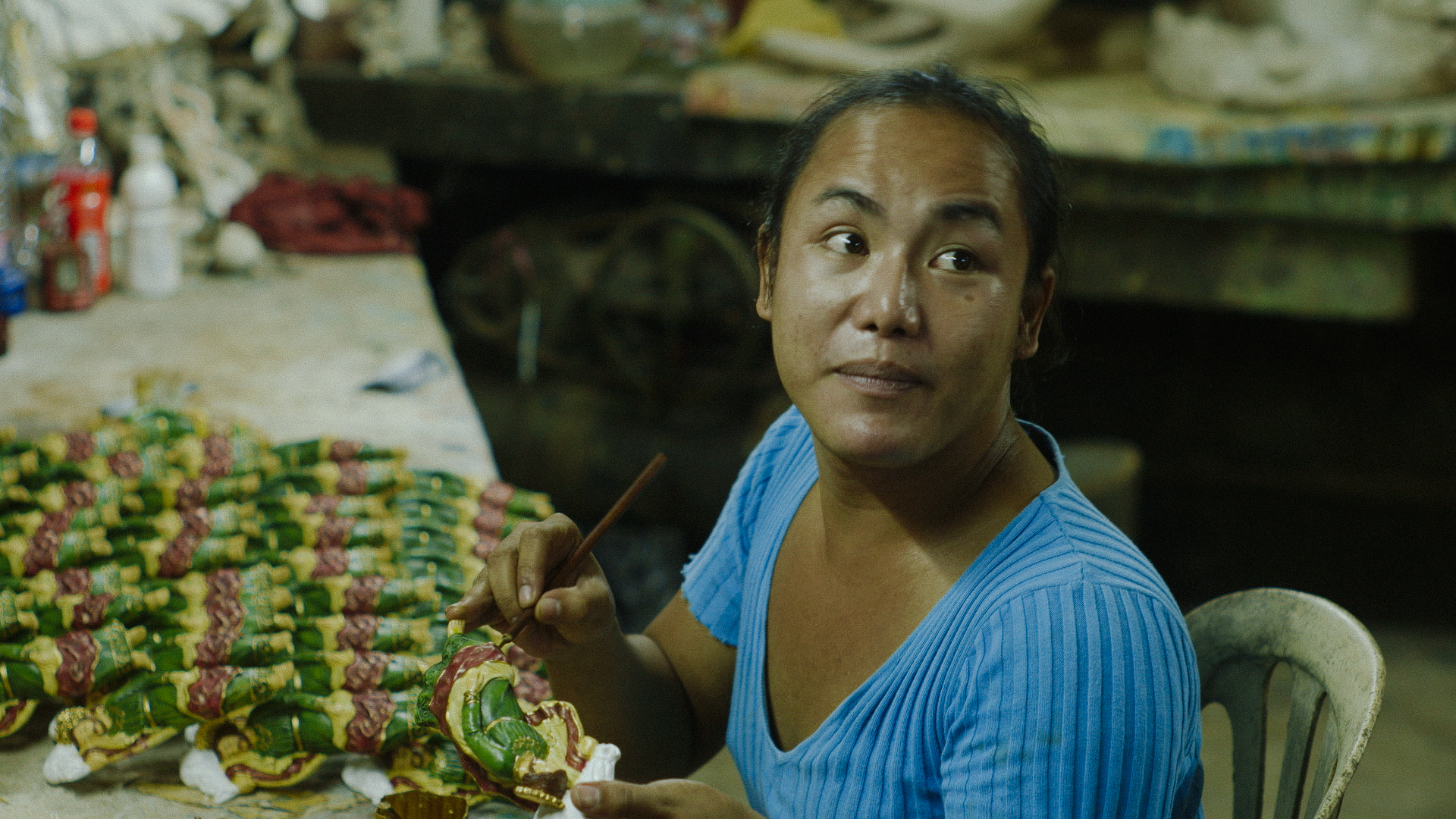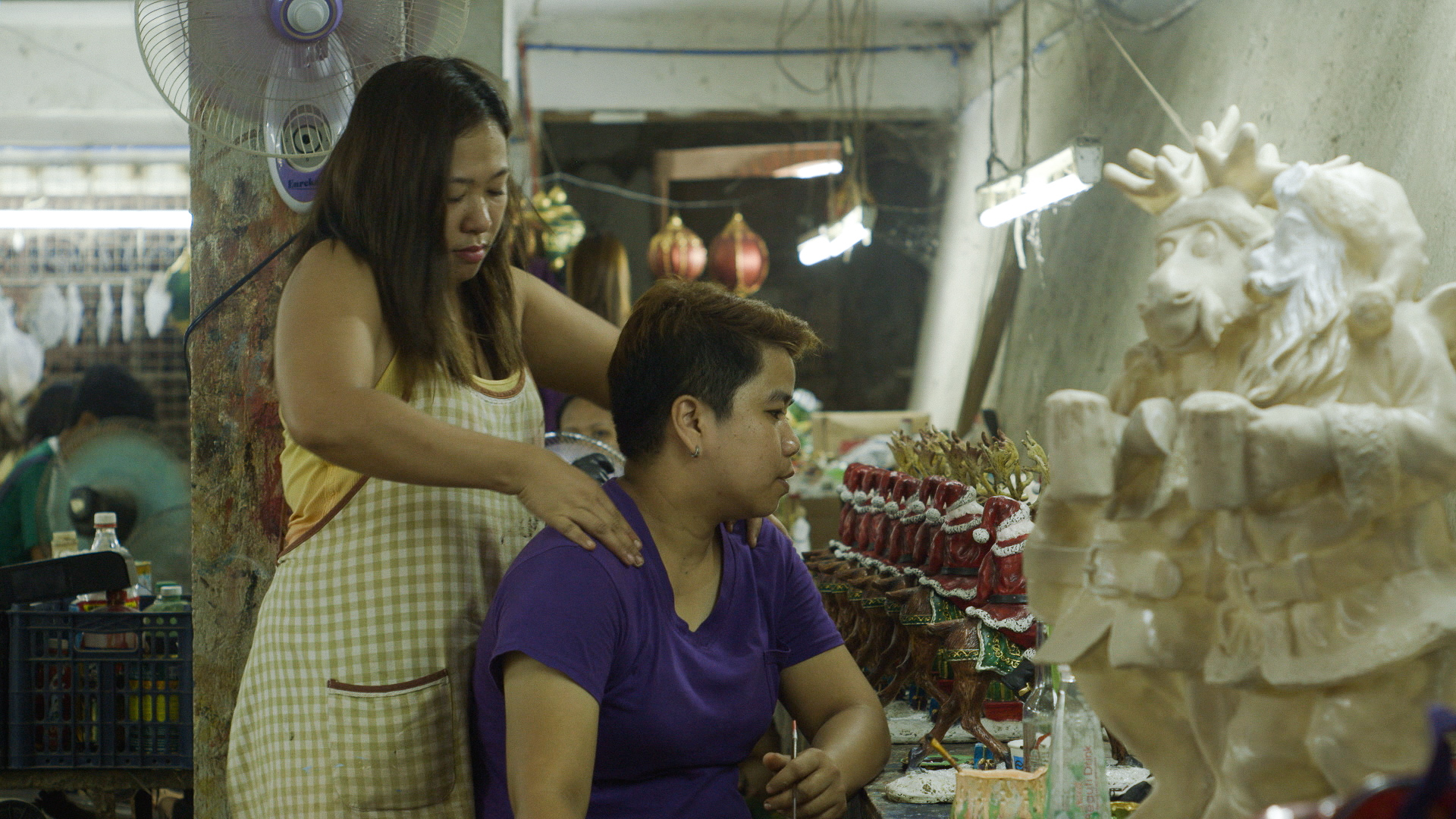Divine Factory
Directed by Joseph Mangat- Unknown Pleasures
- Philippines, Taiwan, USA
- Observational Documentary
- English, Tagalog
- Subtitled
- 2022
- 120 mins
- US premiere
Official Selection, 2022 DOK Leipzig
Official Selection, 2022 Singapore International Film Festival
In a country steeped in Catholicism, where even car engines get blessed, a Manila visit from the Pope triggers huge demand for St. Joseph statuettes and a boom for one windowless warehouse, TML Holy Crafts. In his feature debut, San Diego native Joe Mangat embeds himself on the warehouse floor with thousands of unpainted Virgin Marys, Santa Clauses, and horizontal Josephs. He also pulls up a chair in conversation with their many Creators – Manila’s largely poor and queer social outcasts. Patient, rich in detail, and drily whimsical, DIVINE FACTORY reflects on fascinating intersections of profit and reverence, sexuality and fascism, and surprising economies of care within an extractive factory setting.
In the small details, a complex ecosystem unfolds – from gossip about hookups to the uneasy queer handshake with the church; an employer that is also a generous landlord; the way reverence blends into aspiration and its close cousin, fandom; and as Duterte’s regime leaks through the margins, the warehouse as haven for camboys and people surrounded by drug violence. As the film culminates at holy ground zero – a church visit – the film’s characters join the congregation, the figurines enter a system of worship, and visitors take pictures next to a life size cardboard Pope.
All the labor problems that a factory entails are there. But DIVINE FACTORY is neither an expose of exploitation nor a romance of the artisan. Instead, Mangat achieves something even more challenging. Amidst the constant movement of bodies painting, carving, and casting, DIVINE FACTORY resists the camera’s power to flatten whomever comes into its heavy gaze. Instead the interactions are both conspiratorial and guarded, generous and private, and tap into the incommensurable complexity of the modern condition.
– Christina Ree









 tweet
tweet share
share